#location manager
Explore tagged Tumblr posts
Text
When my site rep tells me their whole life story before I can take pictures…

3 notes
·
View notes
Text


Jeremy DeCoursey (location manager of "We Live In Time")
No more "We Live In Time" set pics 😭😭😭
Buuuut, everyday we are getting closer to getting a release date, I hope. Can’t wait to see it again at the theatre. And I’m really ready for the Florence Pugh and Andrew Garfield press tour.
#andrew garfield#florence pugh#no more set pics of#we live in time#we live in time set#awaiting the press tour#I’m already looking forward to the premiere of the movie#jeremy decoursey#location manager#peter parker#spider man#tasm#the amazing spider man#tasm peter parker#tasm peter#andrew peter parker#andrew peter
20 notes
·
View notes
Video
youtube
LA River - Los Angeles Film Location (Mr. Location Scout)
The LA River is a man made river that flows through the San Fernando Valley, running through Downtown LA, eventually spilling into the ocean in Long Beach. The Los Angeles River has served as a film location to many films over the years; Grease, Pulp Fiction, and Terminator 2 to just name a few. Mr. Location Scout provides premium location scouting services throughout California, with offices in Los Angeles and Orange Counties, as well as Big Sur, Monterey, Santa Cruz, and San Francisco. Specializing in Location Scouting, Film Locations, Filming Permits, and Local Crews. Offering all types of Location Production Services for commercials, television, features, fashion photo shoots and events. Our experienced location managers are seasoned experts with over 1,000 production credits in more than 50 countries worldwide. Contact Mr. Location Scout and let us help you find your next filming location. https://mrlocationscout.com
#Los Angeles#LA River#film locations#California#filming location#location scout#location scouting#on location#location manager
0 notes
Text
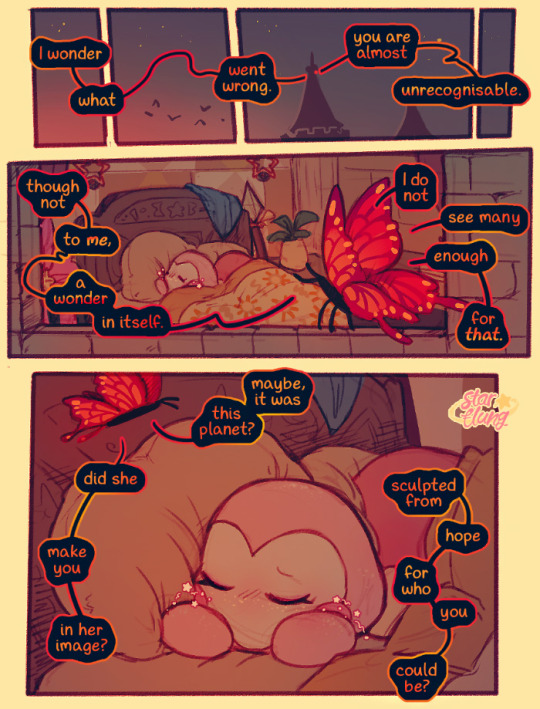
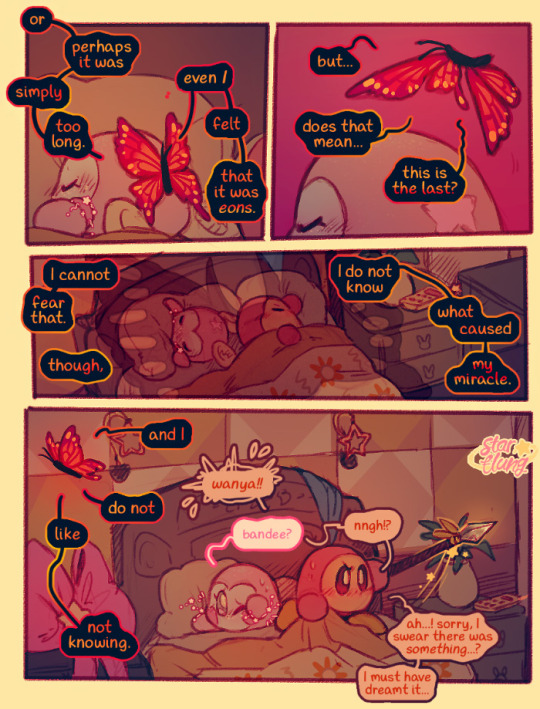
did you remember to leave space for all your phantom limbs?
⋆。 ゚☁︎。 ⋆。 ゚☀︎。 ⋆。 ゚ ┊ ┊ ┊ ┊ ┊ ┊ ┊ ˚★⋆。˚ ┊ ┊ ⋆ ┊ ★⋆ ┊ ◦ kirbytober 2024 #03 ★⋆ miracle // phantom // magic
#starstruck dee#bandana waddle dee#my art#my comics#kirbytober#rare un-bowed starstruck moment!! only sometimes when sleeping; mostly with company who do a similar ritual. so she participates#you would not believe the number of incredibly important monologues that occur while starstruck is snoozing!!#truly she can sleep through anything (if you can get her to fall asleep). not an easy feat#though bandee always manages it! when she can't sleep but she's trying (often) she comes to his room. she just sleeps better not alone.#i wonder if someone from last year's kirbytober will recognise this location design!! i tried to keep it consistent!#anyway! hello lore comics it's been a while! this one wasn't planned actually. was not next in my schedule for her#but this prompt worked so well for it!! so here it is. hope you enjoy!! <3#do i need to... i mean it's obvious this is lore but i guess i should tag it:#🎀🔍#my dream is that one day i will drop something So Pretentious or Confusing or Cheeky that folks will full-legal-name me in comedy rage#“STARFLUNG!WADDLE!DEE!” etc. i think i've said this before actually. i'm getting deja vu... but i do always think it's peak comedy!#gravitational collapse#morpho#morpho knight
265 notes
·
View notes
Text


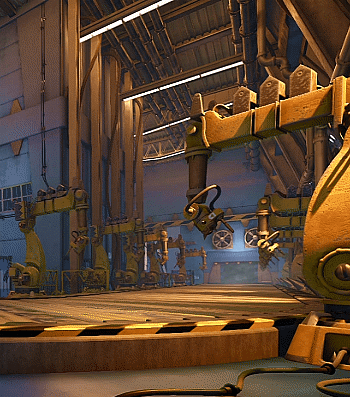




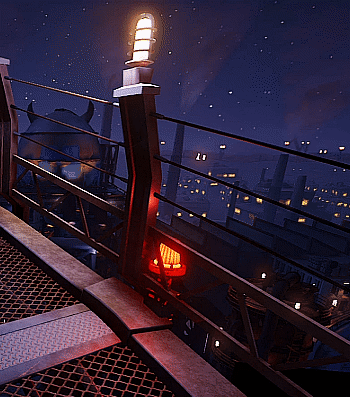
Kingdom Hearts 3 - Monstropolis
#kingdom hearts 3#kh3#monstropolis#scenery#my gif#this factory is enormous and i'm impressed by how much of it we're able to explore since a lot of these locations aren't even in the movie#monsters in this world profit off of collecting childrens' fear; sadness; and misery and i think integrating-#those negative emotions into the recreation of vanitas was soooo clever#even if they did manage to get rid of him in such a comedic manner lol. makes sense sense that it took place on the laugh floor i suppose#but it's always good to see aspects of a disney world create an impact on the story and have its inclusion feel more meaningful#also it's nice to see the unversed again#on another note#sora donald and goofy's monster designs are fun and i'm glad we got to see them look so drastically different#i'd be so sad if instead they had sora stay as his human self and made him wander through a door into the monster world#without letting him be a Creature
169 notes
·
View notes
Text
When Danny agreed to ferry some books between Ghostwriter’s library and The Librarian in Gotham, he didn’t expect it to be that big a deal. It’ll be just a quick jaunt back and forth, right?
…He just jinxed it, didn’t he.
Yep.
He was barely out the door of the Moonstone Club when he first noticed his tails, and it didn’t take any super-senses to tell they meant trouble.
Less than five minutes later, his suspicions were proven right when a lunging figure forced him to drop to the pavement. He would have phased through the ground too, had some sort of presumably-magical force not blocked him.
Guess he was doing this the hard way. Ghostwriter was so gonna owe him when he got back.
And also, what the hell was in these books??
#The Librarian is a fallen angel who appears in the “Deadman: Twenty Questions” arc from the “DC Universe Presents” comic#they manage a collection of books located underneath the Moonstone Club that contain the entire life stories of a lot of people#the Moonstone Club is a nightclub in Gotham and a hotspot for supernatural entities#(sidenote: i'd love to see that place more in fics. it's an extremely minor location in canon, but it's a super cool idea IMO)#anyway i figure those books would be very important to some folks and thus worth stealing if possible#so when they find out about a random teen transferring some to another location, they'd assume he’s a weak link and go after him#dp x dc#dpxdc#dc x dp#dcxdp#danny phantom x dc#danny phantom x dc crossover
77 notes
·
View notes
Text
So, now that my name is officially on the contract, I think I can safely publish a small personal update.
I've experienced a sequence of very fortunate, if banal, events starting a couple of years ago. Got a place to stay thanks to a very kind friend who let me apartment-sit for half rent for a year before he decided to not move back in after all--now it's mine. And because the apartment is juuuust across the municipality line, the new city contacted me and asked if I wanted a free health checkup for long term unemployed people. I got my health stuff back in order, went to (free) therapy for my quite severe social anxiety, got an internship at a local indie cinema and learned to be around people again and significantly, around the Finnish language.
Furthermore, the city also set me up with a new job after that internship!! They have this wildly effective initative where they pair together unemployed people directly with job openings in local companies! And for x months, the city pays half of your wages so that the company has an incentive to hire you.
In my case, an 8 month contract, which is coming to a close in 3 weeks. And those 3 weeks are paid vacation time. I signed a contract today with the local bakery I've been at for that time (+ an initial 2 months internship). For the moment it's just a 5 month summer job once I'm back from vacation but hey, I'll take it! Hopefully they'll hire me indefinitely after that but for now I will take the W.
I'm so grateful that a workplace was willing to take on someone with no relevant skills and shitty Finnish language comprehension as long as I could understand basics, make a neat looking sandwich and wake up early in the morning. My job is a 7 minute bicycle ride from my house. My coworkers are very funny and nice people (mostly) and the tasks are easy but engaging. I don't hate it! In fact, I'm going to try to stay there as long as they'll have me.
Before moving here I rated "attending a job interview in Finnish" as the worst possible horror imaginable to my psychologist, and now here I am, having done that. It's wild having an income, something resembling work stability, and things like vacation.
#I got super unlucky and was sick for long periods of time last year which made management hesitate to hire me for real#but I successfully argued my case#so now I have a summer job#it's a local bakery with a few local café locations#my job is to make sandwiches mostly#I like it and I put a lot of energy and effort into it#oh also after over 2 years of wait time I finally am being assessed for ADHD and autism#personal#also shoutout to my municipality for giving a fuck and actually helping with my life situation <3
33 notes
·
View notes
Text
envisioning a post-diazes-return montage where buck is touring new places to live and eddie is tagging along, inadvertently ruining every showing in some way—as a mirror to buck’s accidental subletter sabotage—that ends in eddie shrugging with the most put upon nonchalance imaginable to tell buck he should just stay…
#instead of weirding out property managers he’s just finding a million things wrong w every location#iinryer post
52 notes
·
View notes
Text
There's a LOT of things people do wrong when constructing fantasy beliefs in pantheons of gods, but one of the more specific is having only one god related to fertility and it kind of being just a horny sex thing.
Like you'll have one in the entire bunch whose sphere is listed as fertility and it's basically like Yeah this is the sex one. She's always depicted naked (but not TOO naked because censorship and/or the writer's own skittishness). She's going to have the exact body type epitomized in contemporary western beauty standards and there's usually no chance in hell that she's gonna be fat (unless MAYBE they're referencing 'venus' figurines). Her thing is fertility, which means having sex and making babies. Might be a goddess of beauty or love or marriage too, because these are kinda sex things, but that's probably it. And yeah that sort of thing is virtually nonexistent in real life.
Like the concept of fertility is so fundamentally important to the function of most societies in human history in ways that it is just Not in industrialized imperial core countries. Most people are getting food from stores, and not having to worry about harvesting crops or breeding livestock or foraging for food or having enough animals to hunt, so fertility only really comes up as a concern if you're trying to have kids (and there is certainly societal pressure to have children, but your wellbeing and survival is rarely going to Depend on it). And I think writing only from that perspective and not even trying to learn about WHY fertility is so conceptually important is why you see this trend.
There's no absolute universal statement about how people believe in gods but it's broadly accurate that systems with many deities will Usually have more than one deity associated with fertility, and these associations will certainly include human reproduction but also the fertility of livestock/hunted animals, plants, the land itself.
Some fertility deities may also be heavily associated with seasonal changes or environmental factors that agriculture or foraging is dependent on (spring/summer/fall, seasonal rains, seasonal flooding, rain itself, sunlight, good soil, rivers, wetlands, etc). Some certainly might be related to love, marriage, sex, and beauty, but that's VERY RARELY going to be the sole way the concept of fertility is embodied. And they'll often will have other associations not directly about fertility, or related to fertility in culturally specific ways.
#I think a lot of the time people are using Aphrodite as their sole reference for the concept of Fertility Deity (and even then#not really grasping the nuances of her depiction/worship or place in the broader ancient Greek religious worldview)#Or understanding that she isn't the Only fertility related deity (like jsut off the top of my head there's fertility associations with#Hera + Artemis + Pan + Dionysus + Demeter + Persephone + Priapus and I'm pretty sure I'm missing several here)#Just in general pantheons where there is only one god associated with any given concept are very rare (unless the concept is very specific)#Like a pantheon with dozens of gods will probably have more than one solar deity but might have only one that presides specifically#over a certain crop or something#Also in a wide reaching/long-spanning religion associations might change with time or as a result of religious syncretism#Or gods may be worshipped under specific and/or localized epithets which describe the god specifically as it presides over this#location or the god as it relates to specific parts of its nature.#It might be a little different if you're writing in a context where the gods are a confirmable part of material reality but even then like#unless your gods are extremely active in managing how they're worshipped culture is going to shape their perception.#Also as a side note if you are completely within your power to depict what you want you should probably be okay with depicting#nudity. Like there's always cultural variations in what/how much/under which circumstances nudity is acceptable (and many cases#where personal nudity is not okay but depictions in art are). But the outright refusal to show a Bare Tit or Flaccid Penis even in art is#virtually nonexistent throughout the vast majority and wide span of human history and like realistically speaking there's going to be#Erect Phallus too. Phallic imagery isn't quite Ubiquitous but VERY common across human history like.. You gotta get over it
90 notes
·
View notes
Text
Rooms Nancy has slept in-
but it goes from motel to Airbnb to YOU SLEPT WHERE??
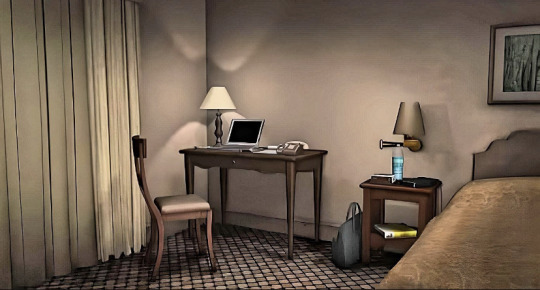
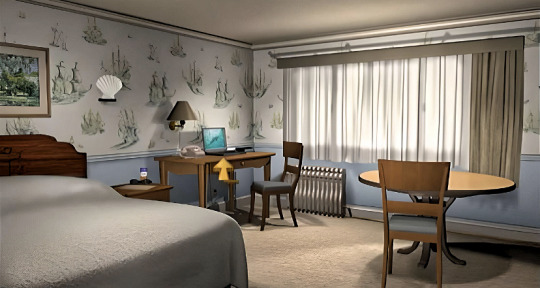
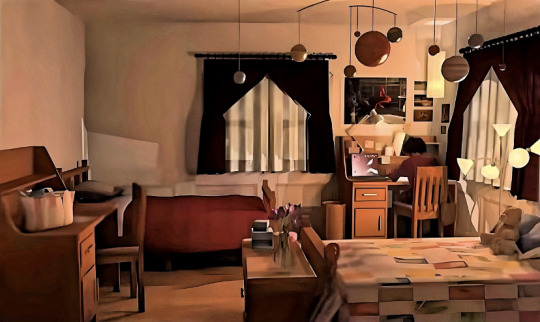
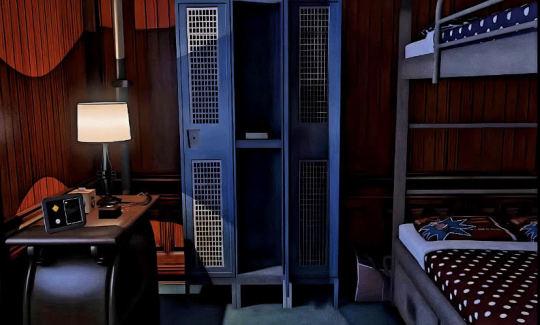
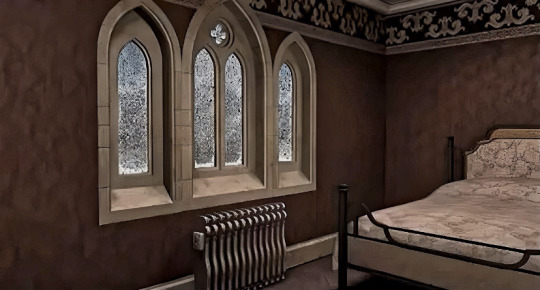
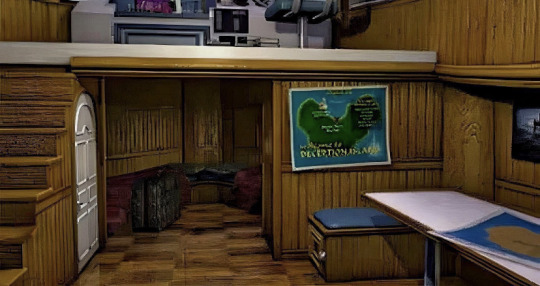





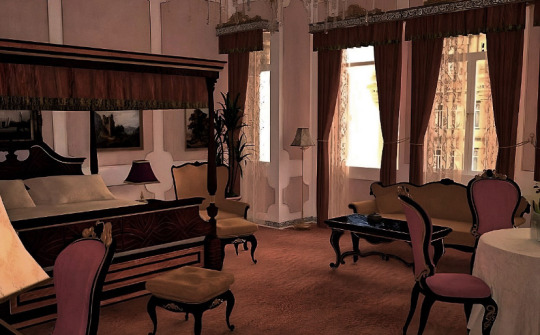

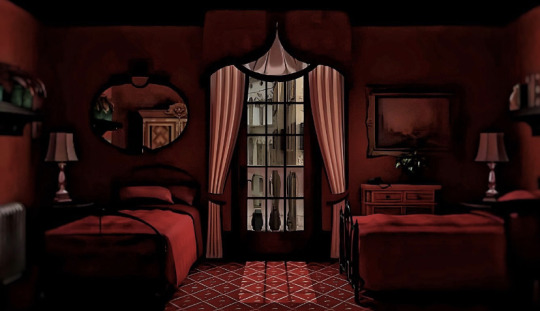

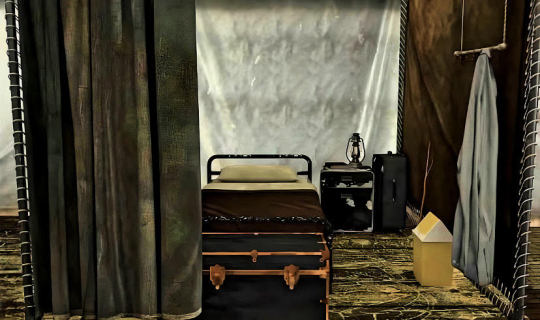
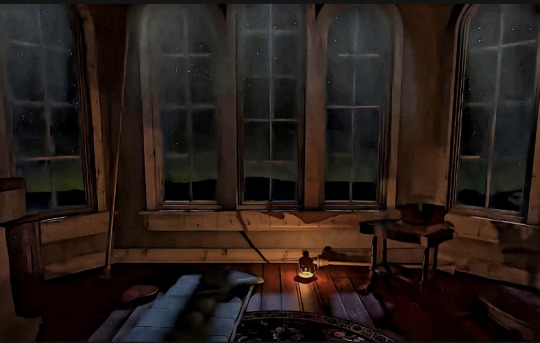
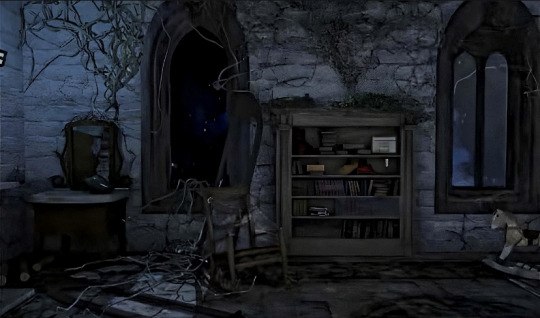
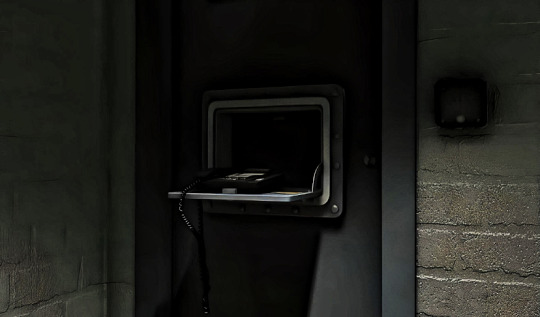
#nancy drew games#nd locations#how has Nancy managed to get into these situations#I know it’s video game magic or whatever#but like#canonically#she’s like… cursed right?#like cursed to never stop solving…#like immortality with an asterisk#* but you have to solve crime and be stuck in a temporal loop for all eternity#but your friends get to join!#clue crew#video game environments#ssh#car#wac#ded#trt#ddi#saw#ice#ash#mhm#spy#cap#ven#cur#tmb#gth#hau
416 notes
·
View notes
Text
Netflix / Extraction 2 | Los Angeles Event Location (Mr. Location Scout)
#mr. location scout#location scout#film location#location manager#california location scout#film scout#los angeles film location#Los angeles location scout#los angeles location manager
0 notes
Text
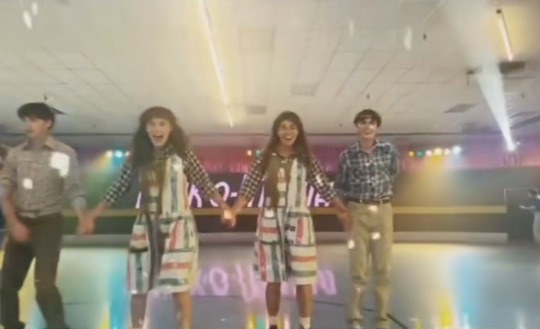
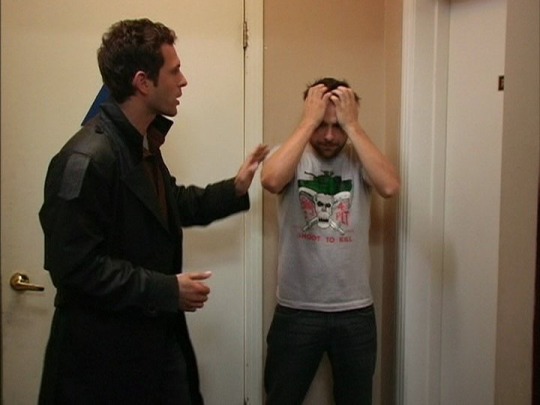
#byler#stranger things#no but why did they need his stand in present doing shoots in the blue while he’s in the yellow that’s my question?…#like why wouldn’t he be wearing yellow like Noah if they just came from a different shoot#also Millie is in the milkshake dress#which means the priority for the time of this shoot was those shots of her getting the milkshake on her#they had like 4 days to film at the rink o mania location#meaning the stand in would not be there unless he had to shoot something and the same applies to Noah#if Noah wasn’t getting paid to be there to actually film he wouldn’t be in costume#basically them having only 4 days means those 4 days were dedicated to only rink o mania shooting#they can film in studio anytime so using precious location time to film elsewhere would be really poor time management and uneccesary#but what I find interesting is it honestly doesn’t look like anyone is on the rink except these guys?#I remember a few TikToks/videos coming from Noah on the rink with his stand in plus Millie#(was it just them all alone with their stand ins at this moment bc they were filming a spoiler filled s5 opener vecna sequence???)#👀👀👀#birthdaygaters chillin#(with fear)
243 notes
·
View notes
Text

[Day 29] Hermitaday - Joel Smallishbeans! Just two guys thinkin about their favorite person (who they’re both completely normal about. Trust.)
Don’t ask me what they’re sitting on. I think they are beanbags. I realized I posed them sitting as I was doing final touches so I just eh and made a blob
#bdoubleo#hermitcraft#hermitcraft fanart#day 29#hermitaday#joel smallishbeans#smallishbeans#joel smallishbeans fanart#ok my grian late for jimmys stream excuse for today?#my manager is in South Africa for 2 weeks so we have a temporary manager#and he’s really really bad at his job#but he has no excuse because he’s from another location in the same company#so I’m late because I was ranting to my roommate when I got home#(I’m the assistant manager and I’m supposed to be in charge of him)#(but since I’m 23 and he’s like 40 he thinks he’s better than me)#(despite us both having the same title)#so :)
57 notes
·
View notes
Text
have now been trying to speedrun mastering driving and its not working because on the off chance that i DO want to go somewhere (rare) then it's never worth Actually Driving to get there.
I've been wanting to go to the mall for 2 days bc i wanna look around, and its like you'd BE DRIVING just to go somewhere and walk around for a bit and maybe spend money? And then have to drive back? For that? For walking around and spending money? I'm good, I'll just stay home. The desire to go out immediately killed by the reality of having to drive there
(this user has had his driver's license for 7 years)
#its not even about it being difficult its just mentally exhausting#i really had to force myself to drive 5 minutes away to get a snack 2 weeks ago#and its not bc the drive there is Hard its bc why would i do all that just do get an ice cream brownie. i enjoyed it but it doesnt#seem Worth it#like regardless of the drive time or reason for driving#its the ''we have food at home'' equivalent of. idk. having experiences#talkys#i have to add the drivers license part now bc ppl keep thinking i dont have it...i do i just never had a car until 2 yrs ago 😭#sometimes i feel that thing where its like. you lose the desire to go bc its not as simple as ''get in car -> drive'' it feels more like#get up get dressed get keys enter car turn on car buckle up leave driveway drive to location#which makes it exhausting but thats not the case rn specifically like i do wanna go i can manage to get dressed. but it just doesnt feel#worth all the trouble#but also nothing would make it worth all the trouble#not worth it to get a snack not worth it to go walk around not worth it even if it was a 2hr drive to see someone. its simply not worth it
23 notes
·
View notes
Text

We fucking won chat
#Everyone say thank you to my work friend who is a manager at one of our locations and managed to snag me one of these#He's a real one for real give him a round of applause 👏#sonic movie 3#Sonic 3#sonic the hedgehog 3#sonic movie spoilers
31 notes
·
View notes
Text

Say hello to Morga Legionwalker! Best dame in the Legions
A very firey elementalist who adheres to her own rules.
#gw2#gw2 charr#oc: morga legionwalker#I wanted to try messing around with traditional art supplies again#And I just got a nice new set of acrylic paint markers#Also yes#her tail is still flaming/smoldering after the incident#She managed to snatch the Falling Star Spear before it could be properly identified and located#This is her outfit as of Janthir#I might post some screenshots soon
21 notes
·
View notes